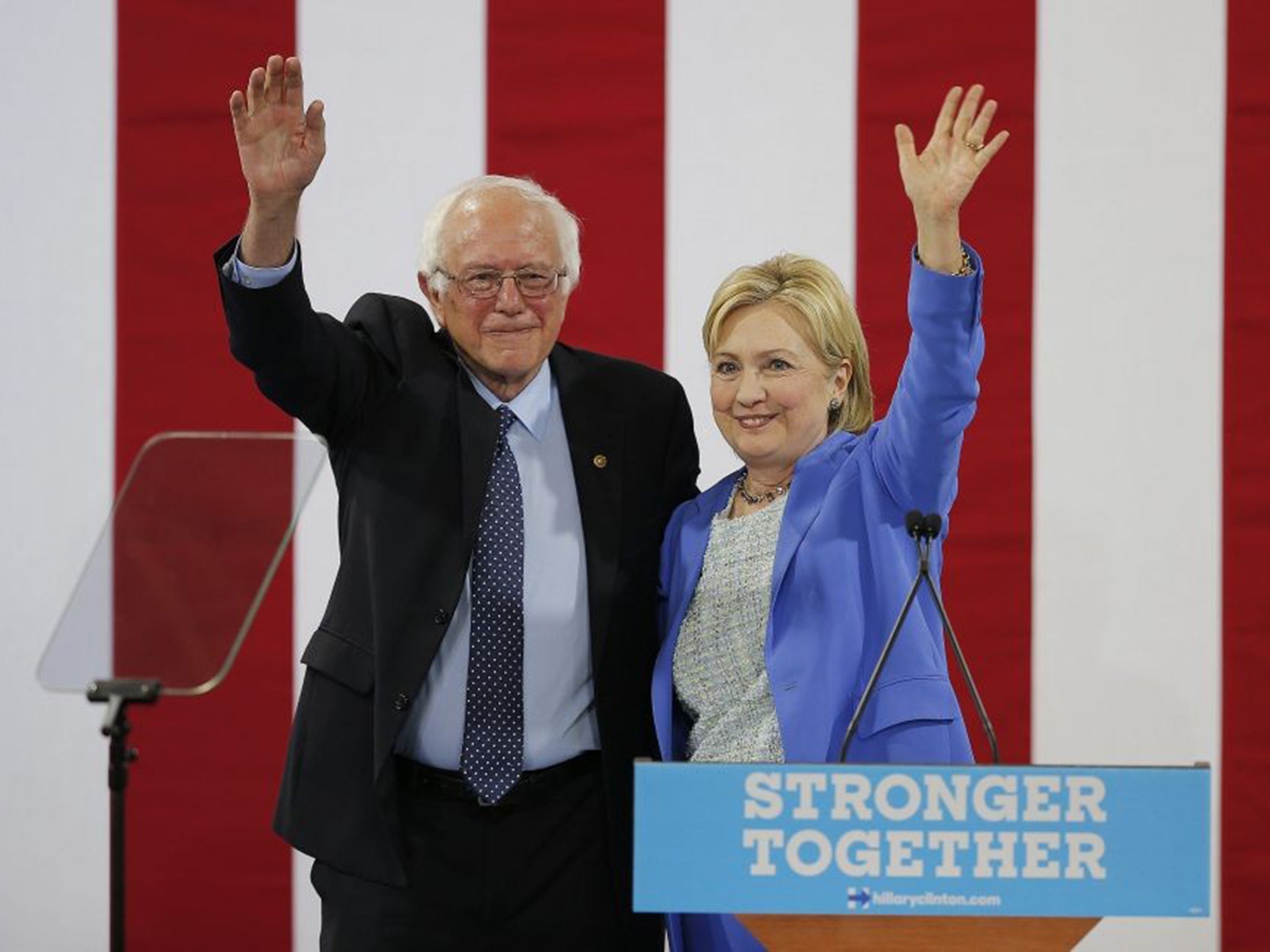What Bernie Sanders promised America, and how it differed from Hillary Clinton
Some claim the Vermont senator would have beaten Donald Trump if he had been the Democratic nominee

Your support helps us to tell the story
From reproductive rights to climate change to Big Tech, The Independent is on the ground when the story is developing. Whether it's investigating the financials of Elon Musk's pro-Trump PAC or producing our latest documentary, 'The A Word', which shines a light on the American women fighting for reproductive rights, we know how important it is to parse out the facts from the messaging.
At such a critical moment in US history, we need reporters on the ground. Your donation allows us to keep sending journalists to speak to both sides of the story.
The Independent is trusted by Americans across the entire political spectrum. And unlike many other quality news outlets, we choose not to lock Americans out of our reporting and analysis with paywalls. We believe quality journalism should be available to everyone, paid for by those who can afford it.
Your support makes all the difference.As the world reels following Donald Trump’s shock election as the 45th president of the United States, people are looking to the Democratic party’s choice of candidate.
Many believe Bernie Sanders could have won the election if he had been nominated over Hillary Clinton, who for many was an unsuitable candidate to face the growing anti-establishment sentiment gripping the West.
But how did the two candidates differ? And what would a Sanders presidency have looked like?
Taxes
Mr Sanders vowed to tackle income inequality by introducing a 10 per cent tax on the super rich, raising taxes for those in the top three income brackets, and creating a new top rate.
He also planned to boost capital gains and estate taxes, crack down on untaxed income made abroad by US corporations, and introduce a blanket 0.2 per cent payroll tax to fund a paid-leave programme that would give workers up to 12 weeks off for family reasons like having a baby.
Ms Clinton also planned to raise taxes but mainly on the super-rich, proposing a four per cent surtax on income over $5m (about £4m) and a higher capital gains tax while saying she would close tax loopholes. She also planned to take aim at hedge fund managers’ income and increase the estate tax rate.
Immigration
Both held decidedly liberal stances on immigration and supported citizenship options for 11 million illegal immigrants. They both backed former President Barack Obama’s executive orders that gave protection to those who lived in the US for at least five years from the threat of deportation.
In stark contrast to Mr Trump’s policy, both would have overturned federal court orders to end the deportation of Central Americans who came to the US illegally fromin 2014.
However, in 2007 Mr Sanders voted against legislation to overhaul immigration laws to allow illegal migrants a path to US citizenship, claiming it did not address the “real needs of American workers”.
Iraq
Ms Clinton held the most hawkish views on Iraq compared to Mr Sanders and Mr Obama.
She campaigned for further US intervention in the Syrian civil war, including the introduction of no-fly zones and a continued US presence in Afghanistan.
Mr Sanders advocated for reduced involvement in Syria and a greater focus on supporting US allies. He also supported a full US withdrawal from Afghanistan and retraction of military involvement in the training of Syria’s rebels.
Gun control
Mr Sanders, a senator from rural Vermont, held a moderate position on gun control. He supported increased background checks before purchasing arms, but opposed holding gun manufacturers to account for deaths.
Ms Clinton was the first Democratic presidential candidate to run on an openly pro gun-control platform since 2000. She advocated holding gun manufacturers liable for deaths using their products.
She also campaigned for increased background checks and banning those on no-fly lists – usually people suspected of involvement in terrorism – from purchasing guns. She also campaigned for a ban on semi-automatic assault rifles.
Join our commenting forum
Join thought-provoking conversations, follow other Independent readers and see their replies
Comments